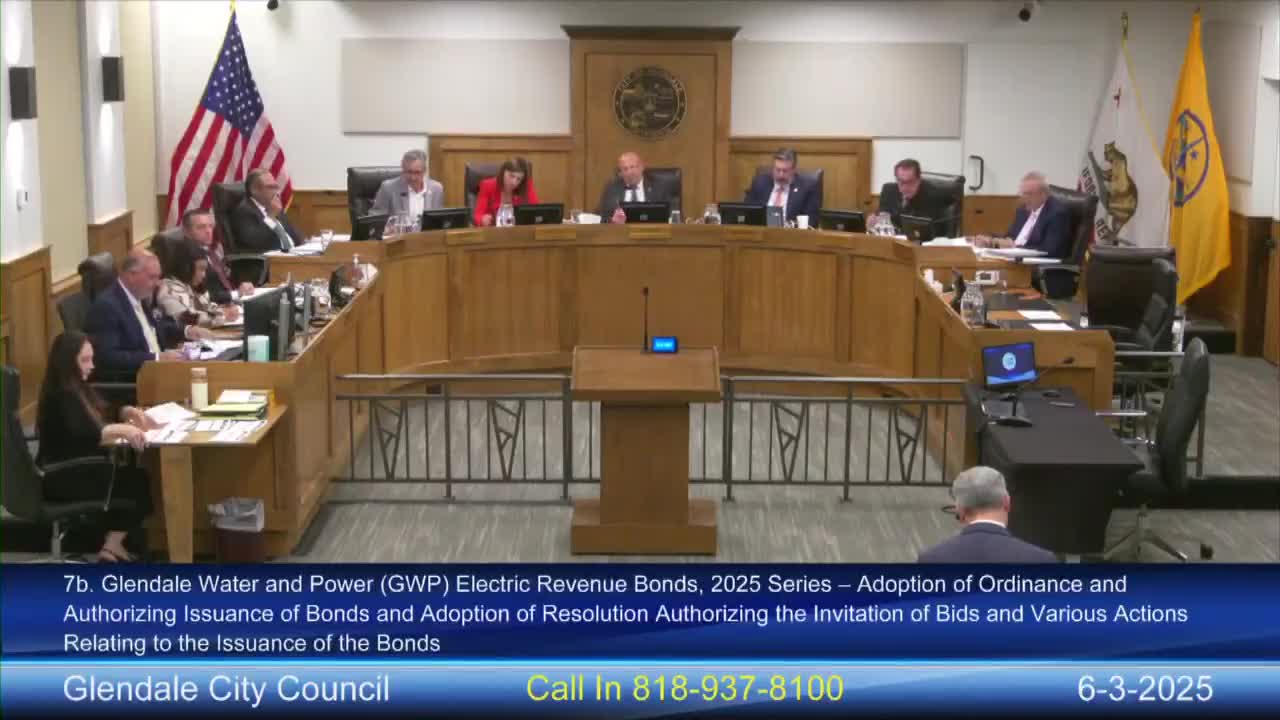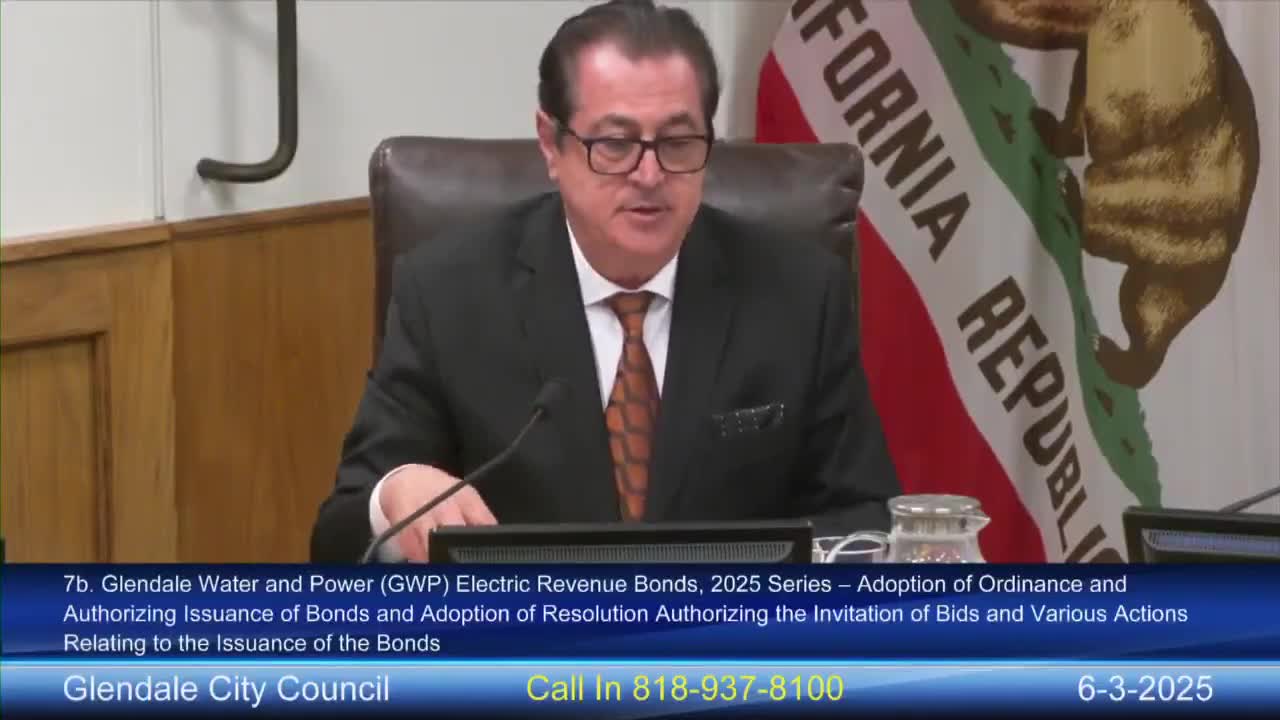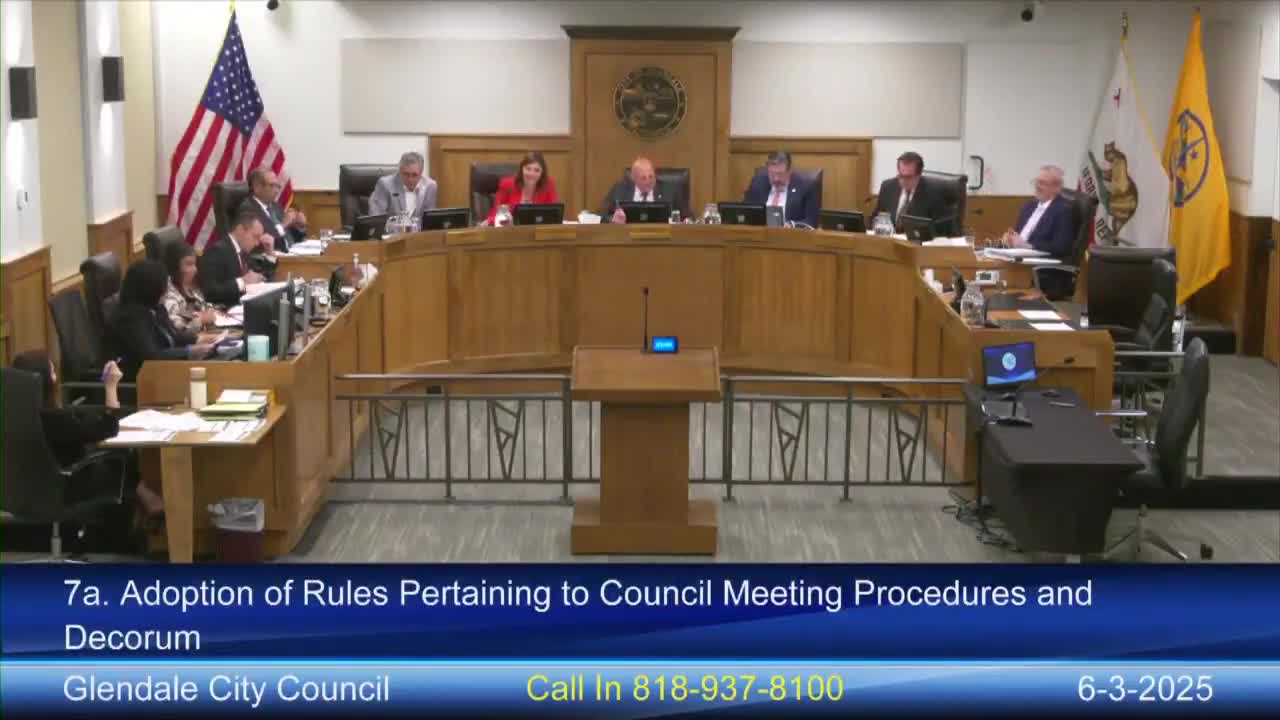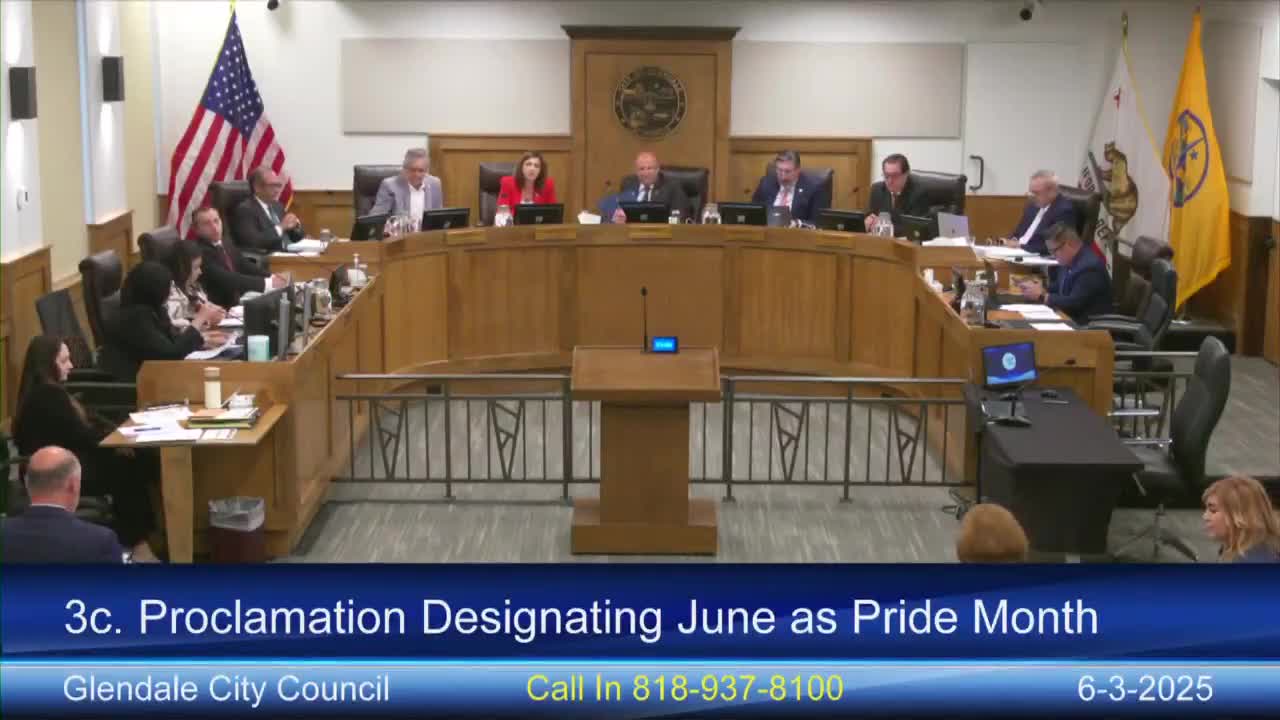Article not found
This article is no longer available. But don't worry—we've gathered other articles that discuss the same topic.

Council awards two-district police tow contracts to Geys Automotive and Mid Valley Towing

Council approves $5,000 sponsorship for Pride in the Park after heated debate over Glendale Out

Glendale council approves up to $230 million electric revenue bonds; delays and spreads July rate increase

